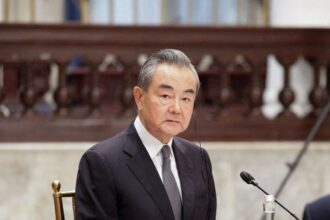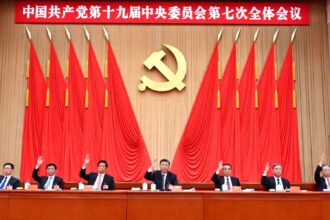Fresh from the BRICS Business Forum in Rio de Janeiro, South Africa’s B20 Sherpa Cas Coovadia laid out an urgent agenda for transforming global economic governance during an exclusive interview on 7 July 2025. With just two months remaining before South Africa hands its B20 presidency to the United States, Coovadia revealed concrete plans to ensure this year’s policy recommendations deliver tangible results for the Global South.
Breaking the Cycle of Empty Promises
Coovadia expressed frustration with previous B20 cycles where policy recommendations “didn’t go anywhere after that.” For 2025, he’s implemented a radical accountability framework: “We’ll say here’s the issue, here’s the recommendation, this is who should implement it – usually a multilateral organisation like the World Bank or WTO – and this is the period of time where it should be implemented.
The Sherpa has secured agreement from the U.S. Chamber of Commerce to continue tracking implementation after the presidency handover. Looking further ahead, he’s initiating talks with the 2027 B20 host to establish a permanent monitoring mechanism, acknowledging that “neither the B20 nor G20 has a permanent secretary.”
Gender Parity Breakthrough
In a landmark achievement, South Africa’s B20 leadership has already reached 50% female representation across all task forces and co-chair positions – hitting a target Brazil had set for 2030. “We’ve got 50% women, 50% men in leadership roles this year,” Coovadia confirmed, emphasising plans to institutionalise this balance.
Mainstreaming SME Growth
Rather than creating separate SME task forces that risk marginalisation, Coovadia has embedded small business priorities throughout the B20 agenda. “Every task force hard-codes discussion on SME development and women empowerment,” he explained. The recommendations include practical measures like enforcing 30-day payment terms for corporate suppliers and simplifying tax processes that currently “have a negative impact on SME cash flow.”
Africa’s Strategic Moment
With rising global protectionism creating new challenges, Coovadia sees unexpected opportunities: “The U.S. is putting tariffs on countries in the EU as well as countries in Africa. That creates opportunities for EU and Africa to sit down and have different conversations.” He stressed that Africa must move beyond being seen as a “begging bowl,” instead positioning its mineral wealth, agricultural capacity and renewable energy potential as solutions to global challenges.
The Infrastructure Imperative
When pressed on Africa’s most urgent needs, Coovadia identified logistics as a critical bottleneck: “Businesses on the continent will be enabled to grow if some of the impediments to business growth are taken care of, like logistics, like power and electricity.” He equally emphasized the need to skill Africa’s youth population for the digital economy, warning that “that youth dividend can turn into a youth problem if we don’t skill our young people.
As South Africa prepares to conclude its B20 presidency, Coovadia remains focused on ensuring this year’s work has lasting impact. “We want to consolidate some of the positions of the Global South before we hand over to America,” he stated, with plans to spend September aggressively advocating for the recommendations’ adoption. The goal is clear – to transform the B20 from a talking shop into a genuine driver of inclusive economic reform.














Надежные микрокредиты Казахстан с прозрачными условиями
Лаки Джет доступен на 1WIN и Lucky Star — адреналин, коэффициенты, быстрые выводы!
Mikrokredit для студентов без справок
Perfect aviator game review for safe gamblers